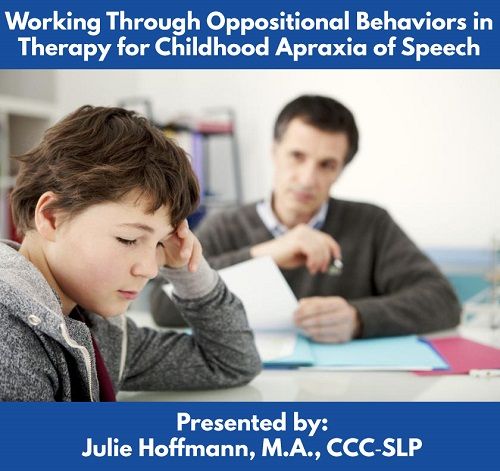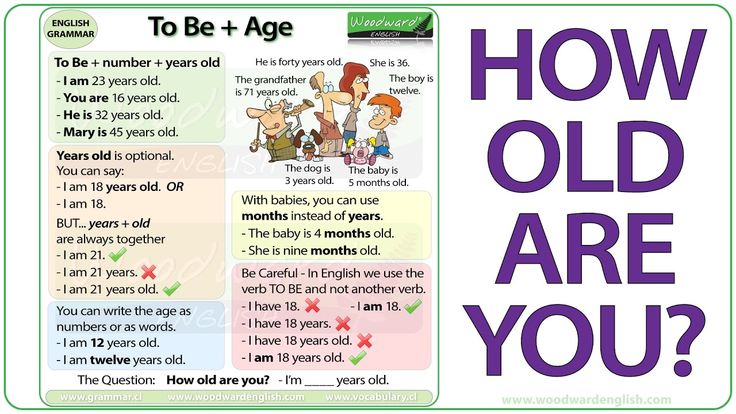How to handle a gifted child with discipline problem
Positive Discipline Tips for Gifted Children
By Oak Crest Academy
- Gifted Children
No Comments
6
SHARES
The concept of discipline is often misconstrued to mean something punitive. In contrast to punishment – which is delivered after the fact, and is intended to cause discomfort – discipline actually refers to the ongoing shaping of behavior. Martial arts skills, for instance, are considered a discipline, as practitioners are expected to slowly build their skills toward mastery of the craft.
As the parent of a gifted child, one of the most important tasks that you will have is to discipline your child toward mastery of life. While many advanced topics and skills tend to come easily to them, the importance of compliance with basic, fundamental, aspects of daily living often tend to elude. It is our job, as parents, to ensure that our gifted children become just as proficient at navigating the mundanity of life as they are proficient at applying curiosity and innovation. Arming ourselves with knowledge about the best way to go about this task can make our jobs much easier. The following are some tricks of the trade when it comes to discipline strategies for gifted children.
For many gifted children, part of the gift involves being able to see an endless set of possibilities. Gifted children tend to chase down every rabbit hole, and often only for the sake of seeing how far down it goes. An endless list of “why” questions can exhaust even the most enthusiastic parent, and explaining every directive in down to its core value isn’t often a sustainable approach.
As a preemptive move for avoiding the interrogation as to what makes your directive valid, consider presenting instructions as a set of choices. This is the same technique that is recommended for use with toddlers, which our gifted older children can sometimes surprise us by acting like during times of disagreement. The tactic involves close-ended requests, consisting of two or three different options.
The tactic involves close-ended requests, consisting of two or three different options.
This technique offers a gifted child the opportunity to hash out the details of the most desirable course of action for themselves, while leaving the parent free to move on to other tasks. It works best in tandem with setting if-then constraints. If little Johnny wants to be able to play video games today, then he must either (A) clean his room, (B) clean the guest bathroom, or (C) take out all the garbage. Why he must do so tends to become less important as the day wears on, and no desirable activities are able to be undertaken. A practical way to phrase this type of directive is to ask Johnny if he would like to clean the bedroom, or clean the bathroom, before playing. Any other option is off the table.
Provide Adequate StimulationThe bane of existence for a gifted child is to be bored. The gifted brain is a ravenous creature, and tends to demand input at all hours of the day. Failing to supply this stimulation can result in extreme discomfort, which can manifest as anxiety, tears, and anger. While a normal child may be fine with looking out of the window of a car during a long drive, the gifted child may feel like a lion trapped in a cage.
Failing to supply this stimulation can result in extreme discomfort, which can manifest as anxiety, tears, and anger. While a normal child may be fine with looking out of the window of a car during a long drive, the gifted child may feel like a lion trapped in a cage.
When you are able to foresee the scenario of your gifted child being understimulated, difficult situations can be avoided, entirely, by working in some intellectual distractions. Doctor office waits can be endured with completing word puzzles or reading a good book. Adult social events can be tolerated with a tablet or hand-held gaming system.
This intellectual distraction from boredom is best when viewed as a supplement to first ensuring that your child implements manners, such as greeting those around and returning conversational cues. Your goal is to teach them how to interact with their mundane environment, while simultaneously teaching them how to keep that brain-beast fed.
Impart Strategies for Emotional Self-ControlThe ability to exercise self-control is fundamental for survival in our social environment. Our gifted children are already outliers from the herd. Assisting them toward being able to be viewed as leaders and respected members of the community – rather than social outcasts – requires that we ensure that they are able to self-monitor.
Our gifted children are already outliers from the herd. Assisting them toward being able to be viewed as leaders and respected members of the community – rather than social outcasts – requires that we ensure that they are able to self-monitor.
The first step in disciplining our children toward self-restraint is to model it, ourselves. If we are allowing our frustrations to manifest as yelling, insulting others, or isolating, the likelihood of our gifted children following suit is high. It is helpful to keep in mind that social intelligence is something that many gifted children struggle with, and that you are their strongest example of what it needs to consist of. Having a mentor to mimic toward interactions of calm speech, unflustered responses, and use of manners is paramount for their own social development.
The concept of a “time out” is often applied in situations where a child is not reacting in an acceptable manner. Children who are not exercising self-control are sent to a solitary location, where they are expected to calm down and think about better ways to approach the situation. The downside of this technique, as it applies to gifted children, is that their brains and emotions are not very likely to change course in the absence of contrary input. They are more likely to stew in that corner than to emerge with a cognitive conception of genuine repentance.
The downside of this technique, as it applies to gifted children, is that their brains and emotions are not very likely to change course in the absence of contrary input. They are more likely to stew in that corner than to emerge with a cognitive conception of genuine repentance.
In place of simply isolating a gifted child who is not reacting well, consider teaching them mindfulness techniques. Mindfulness is often employed by those who are in the martial arts. It is a way to maintain intellectual stimulation, while simultaneously bringing emotions under control. When our emotional responses are kept in check, our minds are able to respond with more applicable solutions to a problem.
For the gifted child, applying mindfulness means that they are learning to accept that they are experiencing negative emotions, without feeling a need to immediately respond to them. It can become a cognitive exercise, in itself, to engage in introspection and uncover the link between thoughts and the emotional reactions which accompany stressors.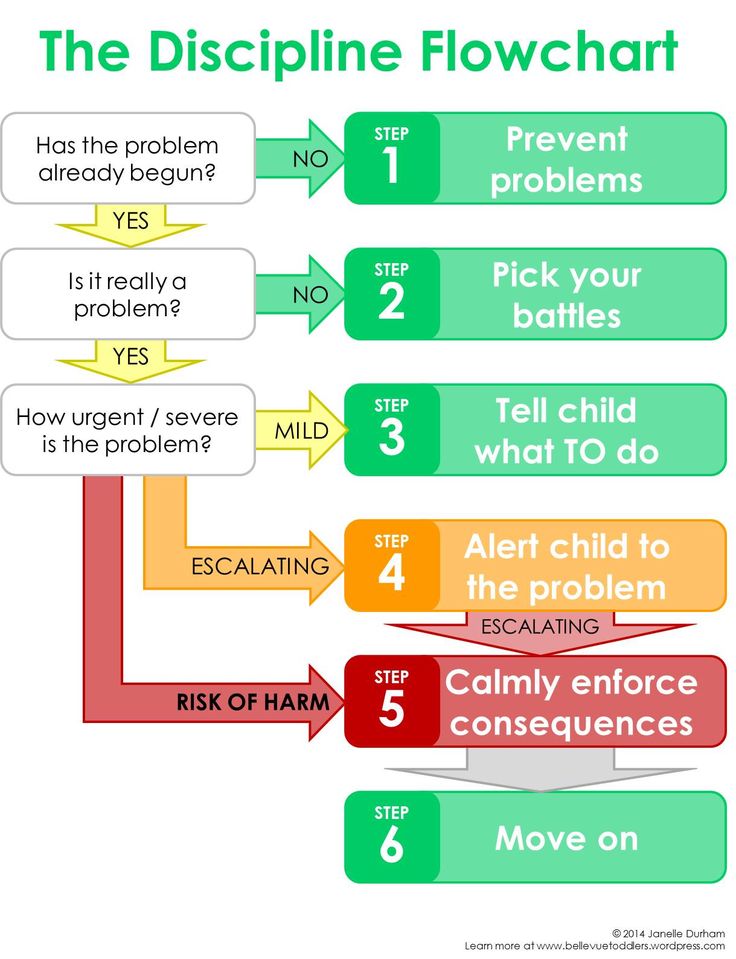 Mindfulness does not teach the gifted child to change his or her unique experience, but to accept it for what it is.
Mindfulness does not teach the gifted child to change his or her unique experience, but to accept it for what it is.
How to discipline your gifted child
Gifted children can present quite a challenge when it comes to discipline. Whether throwing a tantrum mid-aisle at the grocery store, or questioning your rules with legalistic flair, your gifted child is no stranger to intensity... or conflict... or pushing the limits.
Parenting and disciplining a gifted child requires some different strategies than might be needed with other children. The following include some of the differences that just might apply to your child:
1. They will debate you
Be prepared for questions, debates, and endless dialogue about your rationale. This does not mean, of course, that you must debate every decision. Distinguish between reasonable requests for an explanation (why we can't get a puppy) and a manipulation to change your mind ("you let my sister stay up later three years ago, so I should be able to now"). Offer a clear, understandable reason and move on.
Offer a clear, understandable reason and move on.
2. They expect fairness, logic, and honesty
All kids do... but gifted kids, in particular, will rebel if they believe they are deceived or if decisions seem illogical. You don't have to share personal information (dad and I are stressed about finances), but outright deception (taking her to the dentist when you told her you were going out to get ice cream) will build distrust.
3. Their immaturity will surprise you
Despite their astonishing intellect, gifted children can display a surprising level of immaturity at times. They may melt down at the most inopportune moment, embarrass you with their lack of social skills (often due to asynchronous development), and refuse to use that logic you know they possess. Their immature behavior is more noticeable because of how much it contrasts with their heightened intellectual abilities.
4. They may abandon logic, and respond with emotionality, sensitivity, and rigidity
Although logical to a fault, gifted children are often highly sensitive, and may respond to a variety of situations with intense emotional reactions.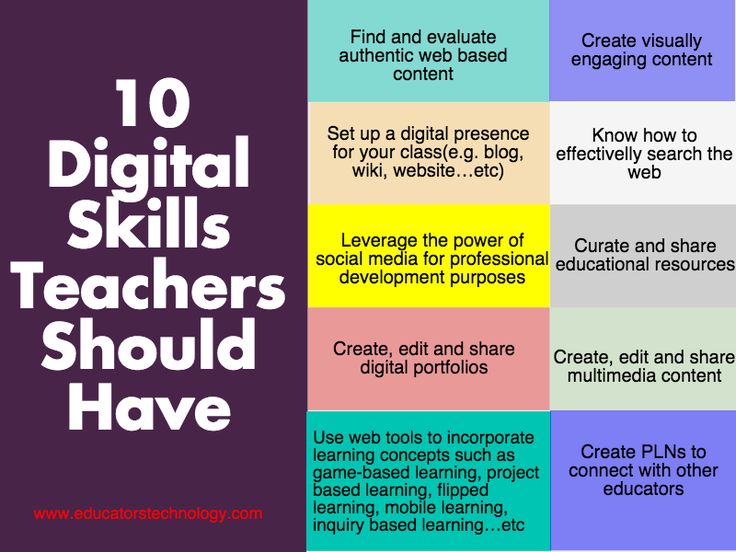 These can include emotional outbursts, oversensitivity, and rigidity (such as refusing to wear anything resembling the school color because they are angry about homework). Emotional reactivity is more common among toddlers and teens, although can be a factor for some children throughout their childhood.
These can include emotional outbursts, oversensitivity, and rigidity (such as refusing to wear anything resembling the school color because they are angry about homework). Emotional reactivity is more common among toddlers and teens, although can be a factor for some children throughout their childhood.
5. They may lack motivation if they disagree with what is expected
If the task seems unfair, unnecessary, too difficult, too easy, poorly conceived, wasteful, or affronts their values, they will resist. It may be difficult to coax a gifted child to comply when he holds onto the belief that a task is just plain wrong. Under these circumstances, you need to determine whether to insist that we sometimes do things we don't like (such as attend a cousin's wedding), or explain the rationale and long-term benefits behind a given task (why he must "show his work" in math class, even though he calculates most of it now in his head).
6. Sometimes misbehavior is driven by internal conflicts related to giftedness
Some behaviors that create problems may be fueled by conflicts associated with giftedness. Perfectionistic children might procrastinate, have melt-downs, and refuse to complete a task until it meets their standards. Those who grasp information more quickly than their peers may seem bossy and intolerant of others' relatively slow pace. Gifted children who are highly sensitive might struggle with family norms, such as spending holiday time with extended family, and respond with tantrums or by acting out when they are older. Recognizing these conflicts will offer some understanding that your child is not purposely trying to be difficult, but merely responding to internal struggles that seem overwhelming.
Perfectionistic children might procrastinate, have melt-downs, and refuse to complete a task until it meets their standards. Those who grasp information more quickly than their peers may seem bossy and intolerant of others' relatively slow pace. Gifted children who are highly sensitive might struggle with family norms, such as spending holiday time with extended family, and respond with tantrums or by acting out when they are older. Recognizing these conflicts will offer some understanding that your child is not purposely trying to be difficult, but merely responding to internal struggles that seem overwhelming.
What can parents do?
First of all, stick with the basics of child-raising and discipline
Child-raising basics ideally include providing love, limits, consistency, age-appropriate expectations, a stable home environment, empathy, open communication, healthy conflict resolution, and discipline that never, ever, involves physical punishment. Obviously, we all slip up. But trying to achieve these basic ground rules is essential.
Obviously, we all slip up. But trying to achieve these basic ground rules is essential.
Avoid punishment by planning ahead
Preventing the need for punishment is ideal. Some children respond best to incentives, where they work to achieve a goal or reward for accomplishing a task. Examples might include an extra hour of screen time for a week of not fighting with siblings, or extra allowance for getting ready for school in the morning without an argument. Since these goals are planned in advance, they differ from bribes and can be reviewed and revised over time as your child progresses.
Acknowledge good behavior
When life is going well, it is easy to forget that all children appreciate recognition when they are behaving well, complete their expected tasks, and demonstrate mature, considerate, or helpful behaviors. The expression, "catch them being good," still holds. The amount of praise or reward needs to fit the scope of the behavior. But even comments like, "hey, thanks for helping with the dishes," or "it was great to see you and your brother playing quietly at your grandparent's house" can have an impact. Excessive praise for the most minor task is unnecessary; just remember to let your child know how much you appreciate their kindness, cooperation, patience, and responsible behavior.
But even comments like, "hey, thanks for helping with the dishes," or "it was great to see you and your brother playing quietly at your grandparent's house" can have an impact. Excessive praise for the most minor task is unnecessary; just remember to let your child know how much you appreciate their kindness, cooperation, patience, and responsible behavior.
Work with their logic
Gifted children appreciate logic, even if they don't agree with the outcome. Enlist the strength of their logical thinking to help them understand the rationale behind decisions. Of course, this does not mean debating for hours; instead, point out your reasoning, let them respond, and then insist that they move on.
Use discipline that seems fair
Most gifted children will understand that a "time-out" or loss of a favorite toy is warranted in response to unacceptable behavior - even if they don't like it. If the punishment seems out of proportion to the transgression, though, they will resent it. Similarly, offer incentives and goals that will encourage your child to stop engaging in problem behaviors.
Similarly, offer incentives and goals that will encourage your child to stop engaging in problem behaviors.
Include them in decision-making
As gifted children get older, you might consider including them in a conversation about what they think view as appropriate punishment for certain behaviors, along with meaningful incentives and goals. If you agree with your child's suggestions, you could incorporate them into a plan for handling the next transgression. This level of participation gives your child a sense of control and involvement in the process.
Consider consequences that involve taking action
Rather than just using time-outs or removing a favorite object, you could require "community service" at home. The task might be as simple as expecting your child to clean the bathroom or rake the lawn. Sending your child to their room, for example, may not seem like much of a burden, whereas expecting some form of action to compensate for a transgression may have more of an impact.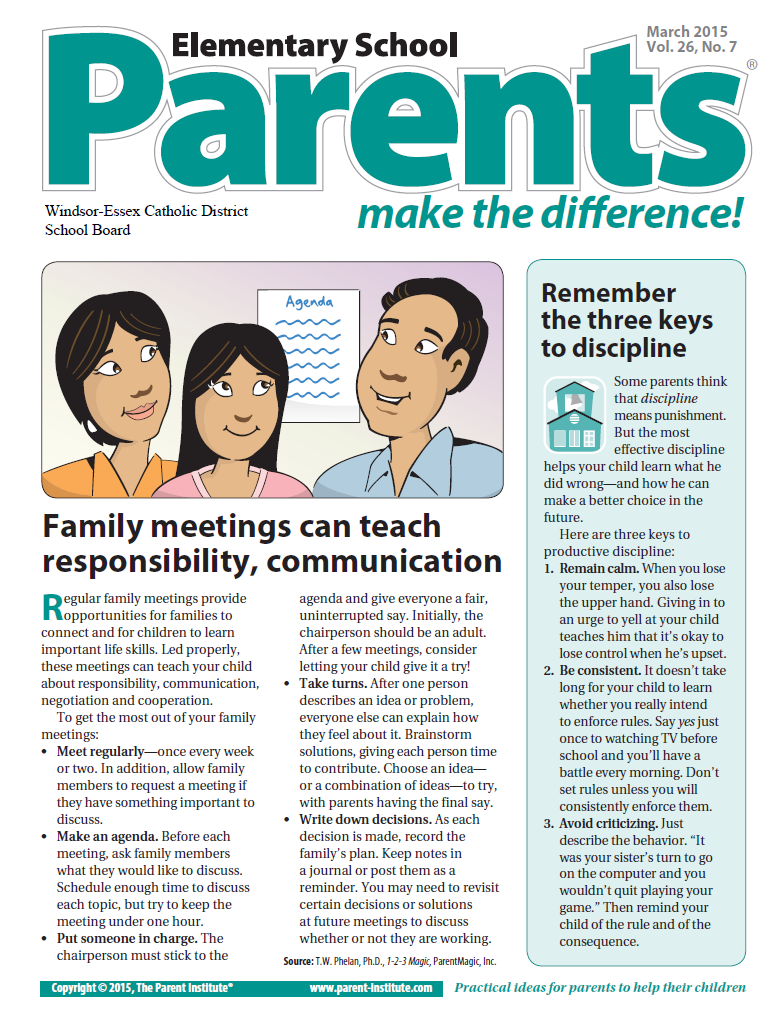
Insist that they make amends
If the transgression involved destruction of property or hurting someone's feelings, insist that your child generate a plan for making amends. A quick, empty apology is not enough. Ask your child to come up with a more heartfelt expression of regret for their behavior in words or action, such as repairing the damaged item, saving up to purchase the toy that was broken, or expressing a verbal apology that is more than just "I'm sorry." As much as your child won't like any of this, it will appeal to their logic and sense of fairness.
Help predict and prevent situations that may lead to problems
Gifted children may become easily overstimulated... or become bored and act up to amuse themselves... or overthink and worry about a new situation, resulting in a balky refusal to participate. Help them with these difficult challenges through support, skills building, perspective-taking, and role-playing. Try to anticipate and steer clear of avoidable situations that create conflict. Develop a sense of when to push and when to let go of your own expectations. Of course, sometimes problems persist due to a range of difficulties - family crises, stressful life transitions, mental health problems, social stressors, etc. Under these circumstances, counseling with a licensed mental health professional can be helpful.
Develop a sense of when to push and when to let go of your own expectations. Of course, sometimes problems persist due to a range of difficulties - family crises, stressful life transitions, mental health problems, social stressors, etc. Under these circumstances, counseling with a licensed mental health professional can be helpful.
The best form of punishment is one that never needs to be used. Through a better understanding of what triggers your child's reactions, along with a fair and reasoned approach to limits and discipline, your gifted child will recognize that certain problem behaviors won't achieve what she wants. Over time, these behaviors should improve or abate, and life should get easier for all involved.
This blog is part of the GHF blog hop on "discipline and the gifted child."
Pedagogical work with gifted children
References:
Ayrumyan, G. S. Pedagogical work with gifted children / G. S. Ayrumyan, D. S. Galanina. - Text: direct // Young scientist. - 2016. - No. 1 (105). - S. 674-677. — URL: https://moluch.ru/archive/105/24914/ (date of access: 11/30/2022).
S. Ayrumyan, D. S. Galanina. - Text: direct // Young scientist. - 2016. - No. 1 (105). - S. 674-677. — URL: https://moluch.ru/archive/105/24914/ (date of access: 11/30/2022).
Every day in the world there are many discoveries that are both positive and negative. Behind all these discoveries are people, but who are they? The highest level of development? Geniuses? They are gifted individuals.
The intellectual level of gifted people is a guarantee of high results. Educational Institutions, which carry out their activities based on the Educational Standard, help to show oneself to the world and develop skills to a certain level.
Students are offered classes of different directions, depending on the preferences of the student and opportunities, the development of the student also takes place outside of school hours (sections, circles, olympiads, competitions, etc.).
To identify a gifted child and not to miss the time when the child wants to develop is one of the main tasks of teachers. Gifted children are most sensitive to self-esteem and evaluation of their activities by others, it is a mistake to assume that more developed children do not need the help of adults.
Gifted children are most sensitive to self-esteem and evaluation of their activities by others, it is a mistake to assume that more developed children do not need the help of adults.
Gifted students are critical in everything, they look for mistakes in their actions and the actions of teachers, as they imply a dishonest or less serious assessment. All work activities of teachers should be looped on tolerance for criticism and understanding of each child as an individual. But everyone knows that all people are different and understand the world in different ways.
Teachers should be prepared for the fact that gifted students are restless and it is very difficult to fit them into the framework, an approach must be found for such children, because not a single statement or request will be taken seriously by children. For them, everything must be justified and have certain arguments.
In elementary school, almost all children are gifted individuals, this is due to the fact that children have more intellectual abilities than adults, they are receptive to learning and can show themselves in any creative activity.
Based on this, the development of giftedness should begin already in elementary school. It is very important to create a situation of cognitive difficulty in the classroom, in which students must independently cope with several mental operations in the classroom. The child should be put in the position of a researcher, a discoverer, so the child will more fruitfully immerse himself in the matter.
A teacher who sets himself the goal of educating a gifted student must constantly improve himself and work on himself. The teacher should not forget about the age capabilities of each student.
Otherwise, the education of gifted children will be practically no different from traditional education.
It is worth noting that children with normal gradual development are no worse than gifted children; their learning and development goes smoothly - step by step, over time, they also begin to manifest themselves in various creative situations.
V. A. Sukhomlinsky said that a person’s giftedness is a small sprout that has barely hatched from the ground and requires great attention. That it is necessary to cherish and cherish him, to look after him, to do everything necessary so that he grows and gives a great fruit.
A. Sukhomlinsky said that a person’s giftedness is a small sprout that has barely hatched from the ground and requires great attention. That it is necessary to cherish and cherish him, to look after him, to do everything necessary so that he grows and gives a great fruit.
In fact, the way it is, the giftedness of the child and his desire to show himself to the world comes from the family, the catalysts here are the parents, who must notice the internal prerequisites for outstanding achievements and guide their child for their realization.
Many factors influence the development of a gifted individual. For example, the most important factor in the development of a primary school student is the social environment. Being calm and comfortable, it creates an environment around the child without irritants. A socially calm and easy-going child is completely immersed in the business that he likes and in which he can excel.
It is very easy to identify a gifted child, gifted children, as a rule, are not satisfied with working with a textbook, they are not interested in the usual course of a lesson, they are much more attracted to reading dictionaries and encyclopedias, answering their own questions in various areas of interest to them.
The giftedness of a child should be considered as an interaction of characteristics: creativity, a level of development above the average and intellectual abilities. Creative productivity will certainly be achieved if these characteristics are attributed to the child.
Giftedness is not something single, but a combination of several types of activities in which children can show themselves. For example, leadership qualities, one of the criteria that determine giftedness, are also a wake-up call to identifying a gifted child. Communicative, artistic, physical, spiritual activities are just a part of what parents and teachers should pay attention to.
Gifted children are interested in different types of science, they do not limit themselves to one thing, they have many specific questions and ideas on how to learn something new.
When working with gifted children, teachers must remember that extremes are highly undesirable. It is worth understanding what is not worth it:
It is worth understanding what is not worth it:
- put the child on a pedestal, emphasizing his special rights,
- apply public humiliation or ignorance.
At school, children may encounter difficulties due to communication with peers and teachers, in order to avoid conflicts, it is worth seeking help from a teacher-psychologist. A psychologist will help a gifted person adapt and avoid self-isolation from others.
There is no doubt that it is worth developing the giftedness of students through the optimal combination of basic, additional and individual education. This provides a continuity that helps children develop harmoniously, both at school and at home.
Self-esteem, increased susceptibility, independence, competitiveness, leadership - these are the personality traits of a gifted child, which most often do not pay attention to, but in vain. It is by these features that it is easiest to identify a gifted child.
The interaction of a teacher with a gifted student is the main factor in all learning. During classes, teachers ask questions more often than they speak. A large amount of information is replaced by various demonstrations, experiments. For teachers, first of all, it is important not to answer their own questions and not to help students solve problems, this makes it possible to more deeply comprehend the material and solve it with great results.
During classes, teachers ask questions more often than they speak. A large amount of information is replaced by various demonstrations, experiments. For teachers, first of all, it is important not to answer their own questions and not to help students solve problems, this makes it possible to more deeply comprehend the material and solve it with great results.
Teachers need to listen more to the answers of the gifted, accept them, but not evaluate them, showing the children in various ways that they have heard them. This helps Gifted Children connect with the class.
The giftedness of different sexes is different; boys and girls perceive this world differently, so this should also be paid attention to when working with children.
Boys are basically individuals with flexible thinking, a desire for dominance, they have many diverse interests and are very emotionally sensitive.
Girls, on the other hand, have extraordinary thinking and a peculiar logic, they are creatively active and can often be stressed.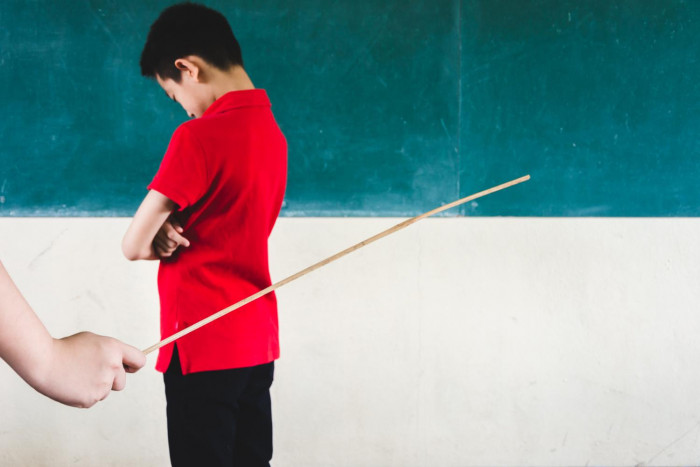
Gifted children often have problems due to differences in physical, intellectual and spiritual development. With their dislike for school life, which comes from a misunderstanding of the need for education, since it is more interesting for gifted children to acquire knowledge themselves, and not through intermediaries.
The problem of giftedness is a complex problem in which the interests of different scientific disciplines intersect. The problems of identification, training and development fall almost entirely on the shoulders of teachers. The work of a teacher with gifted children is a complex and ongoing process during which a child's personality is formed.
In working with gifted children, the personal growth of the teachers themselves and their pedagogical activity are important.
Gifted people can easily contribute to the development of this or that science, but, unfortunately, very little has yet been created for children who develop before their age and exceed their age norm in various directions. As soon as increased attention is paid to the development of gifted children, the development of states will proceed with enviable speed!
As soon as increased attention is paid to the development of gifted children, the development of states will proceed with enviable speed!
Literature:
- "Psychology of giftedness in children and adolescents", edited by N. S. Leites, M., 1996.
- Terasier J.K. "Super-gifted children", M., 1999.
- Popova L. V. "The biographical method in the study of adolescents with different types of giftedness", M., 1993
- Yurkevich V. S. "Gifted child" - M; 1996
- http://nsportal.ru/shkola/psikhologiya/library/2013/01/15/odarennye-deti-i-osobennosti-pedagogicheskoy-raboty-s-nimi
- http://pandia.ru/text/78/203/1669.php
- Yandex pictures
Basic terms (automatically generated) : child, gifted child, world, elementary school, learning, gifted person, gifted student, teacher, development.
4 rules for working with gifted children
Why is secondary school so that everyone learns about the same? Nonsense! Gifted children can appear in any class. How to teach them if they grasp everything on the fly and stay ahead of the program? Our regular blogger, physics teacher Philip Belov, shares his experience and gives advice.
How to teach them if they grasp everything on the fly and stay ahead of the program? Our regular blogger, physics teacher Philip Belov, shares his experience and gives advice.
Next week I will participate in a conference dedicated to the psychological and pedagogical support of gifted children. As stated in the program, the main goals of the conference are to improve the forms and methods of working with gifted children, study the conditions for their creative development and exchange positive pedagogical experience in this direction.
The report should be devoted to the peculiarities of the organization of the educational process when working with gifted children. This made me do some reflection and share the ideas, technologies and ways of working that I use in teaching children at the profile level.
My practice of working with gifted children is related to the physical and mathematical profile, but I believe that ideas of a general methodological nature can be extended to other disciplines of the school course.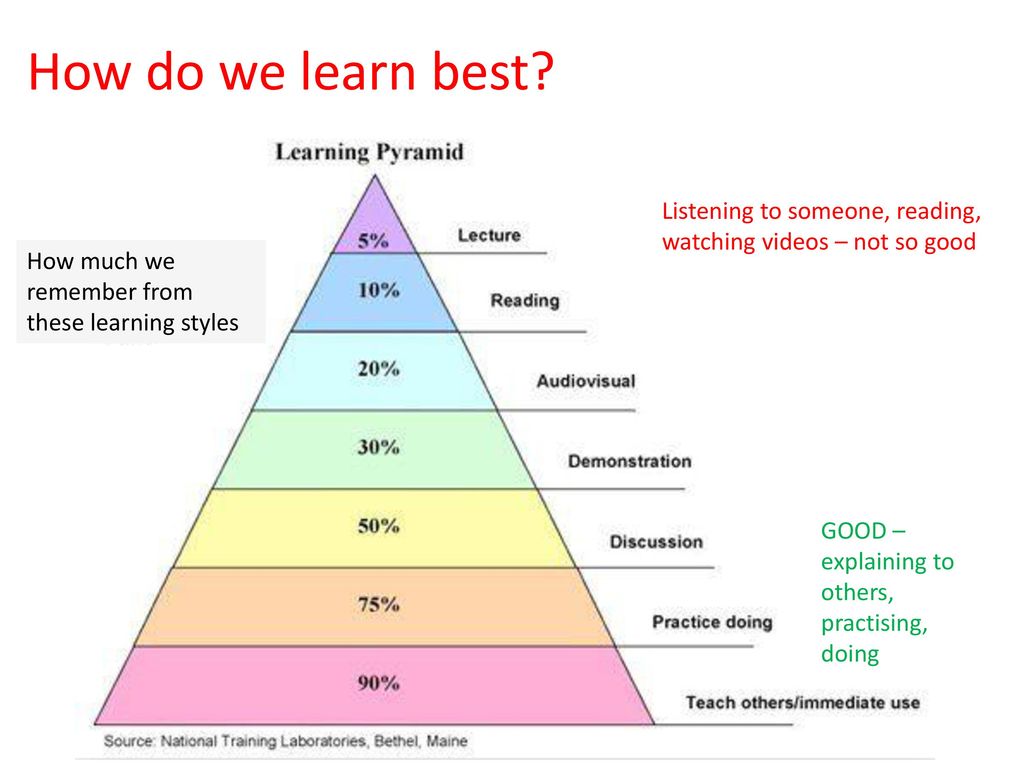
Suppose that gifted children have already been selected, handed over to the teacher and ready to work. What to do with them? How to develop talents? How to build individual learning paths? These questions are answered by the methodology of psychological and pedagogical support of giftedness. Let us dwell on some defining features of the organization of the educational process in this context.
1. Children of different levels
No matter what school, lyceum or gymnasium we are talking about, even with an in-depth study of a particular subject or a set of disciplines in a class, in any case, children will be of different levels. The truly gifted, even in the specialized physics and mathematics lyceum, as a rule, are from one to five per class. The rest are just motivated or just starting to show interest. True, there are also representatives of the other extreme - children, whose active attention has to be won for a long time and difficult, and whose motives and goals have to be painstakingly formed.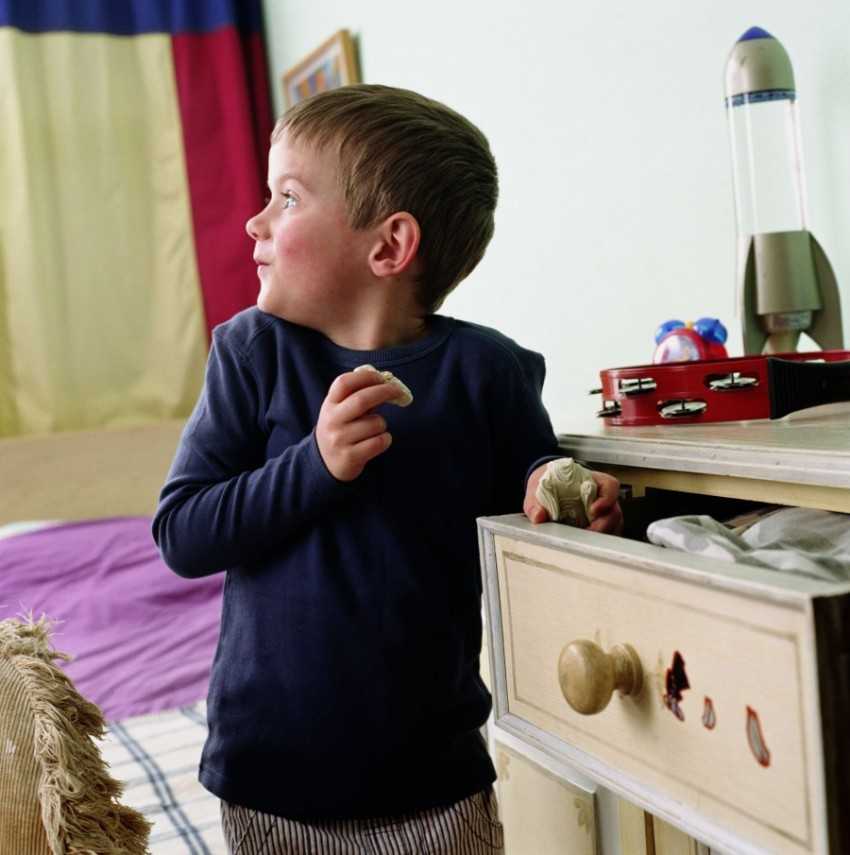 Each teacher is still forced to build the educational process in such a way as to take into account the interests of everyone.
Each teacher is still forced to build the educational process in such a way as to take into account the interests of everyone.
This factor has a direct impact on the process of designing individual lessons. In order for the strongest not to be bored, and for the weakest to also be included in the high pace of work that is usually characteristic of such classes, it is necessary to carry out special preparation of differentiated tasks for different categories of students.
Differentiation is the first approximation to an individualized approach in teaching, without it the development of giftedness will be impossible
Effective implementation of the principle of individualization in education, when there are 25 people in a class, is actually impossible. At the same time, it is quite possible to build a lesson in such a way that everyone understands you, and the group of the strongest students is busy with work. When students are interested in the lesson, when they understand everything the teacher says, when everyone is engaged in one or another type of activity, no disciplinary problems arise.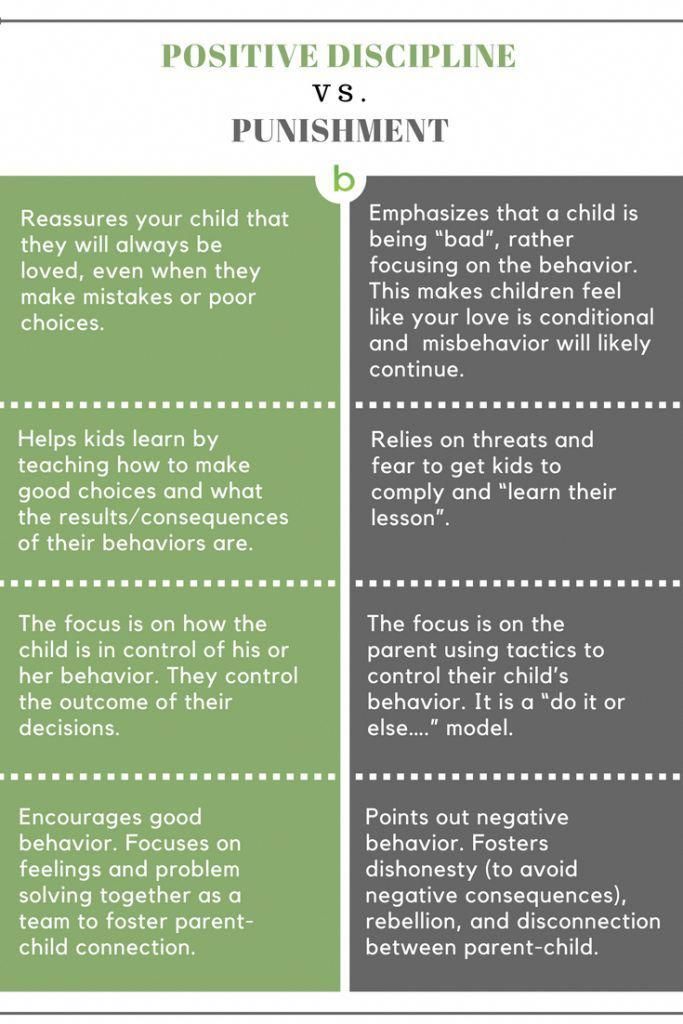
From the latter follows the objective need to organize circles for a group of students who show ability to the subject, in addition to the basic part of the curriculum. In this case, it becomes possible to move away from focusing on the average student to work to support the development of the gifted. Working in a circle requires more serious preparation from the teacher, but its effectiveness is many times higher than the best, well-prepared lesson for the whole class.
2. Near and far targets
The circles that I lead are primarily aimed at preparing lyceum students for participation in Olympiads. A well-constructed system of near and far goals for the development of the educational trajectory of gifted students is the second significant factor that determines the effectiveness of the educational process. If the teacher does not help each student develop personal goal settings, then he can conduct at least a thousand circles and prepare gigabytes of differentiated tasks, but at some point the children will lose interest, not seeing a practical way out of their efforts.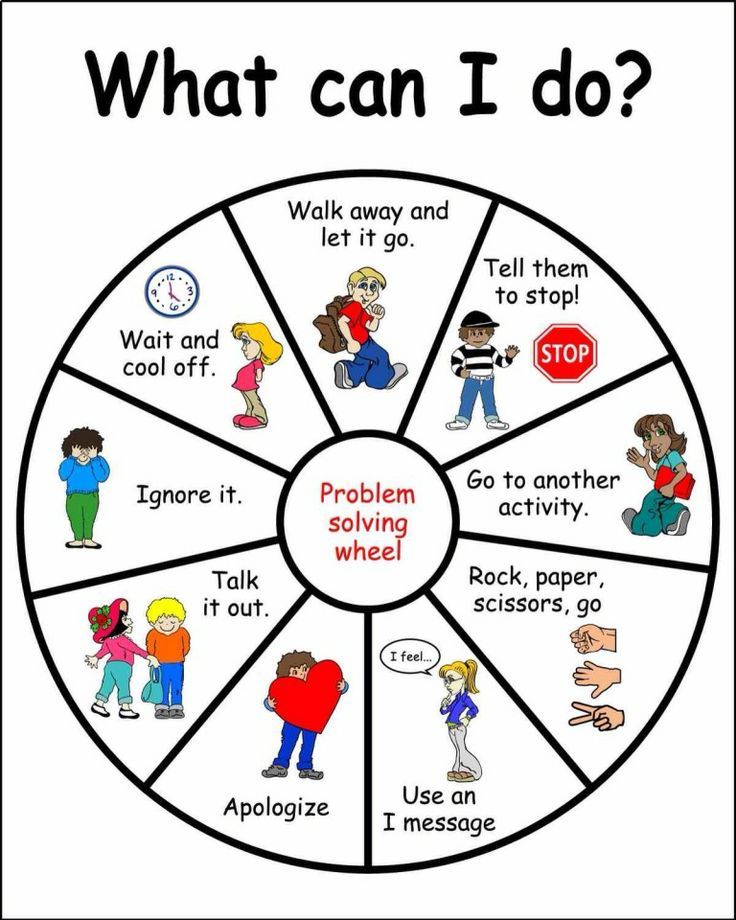
My students participate not only in the traditional All-Russian School Olympiad. We try our hand, get high results and take places in the Physics and Technology Olympiads, Foxford, Moscow Distance Olympiads and many others.
At the same time, it is necessary to set priorities and not just bombard students with links to endless Olympiads and competitions. It is necessary to explain the differences in the levels and prestige of different competitions, show the opportunities and bonuses that victory in each of them gives (or does not give), provide the opportunity for independent search and choice of areas of one's activity. To do this, the teacher himself must be well versed in the current trends of the Olympiad movement, justify the setting of local and global goals.
3. Psychological and pedagogical support
If a teacher works from call to call, refusing to answer questions during breaks or after classes, not allowing communication with his students outside of classroom hours, then you should not count on serious results.
We discuss their issues with children in social networks. I am online all the time, like them, ready to answer their organizational and substantive questions within reasonable limits. This is especially important when preparing for the Olympics. I often share with them on social networks ideas that come to mind or that I find, read and hear somewhere.
The usefulness of social networks for education cannot be denied. Such work may seem very complicated and cause ambiguous opinions, but if you do not exaggerate, then you can see reasonable logic
It is important to maintain the continuity of the educational process for gifted children. Today, classes are often canceled at school due to quarantines, frosts and other external factors. This should not lead to the fact that children leave the attention of the teacher.
It is necessary to competently organize remote work, not be limited to the wording of homework in an electronic diary. You can check homework in electronic form when children upload response files to an electronic diary.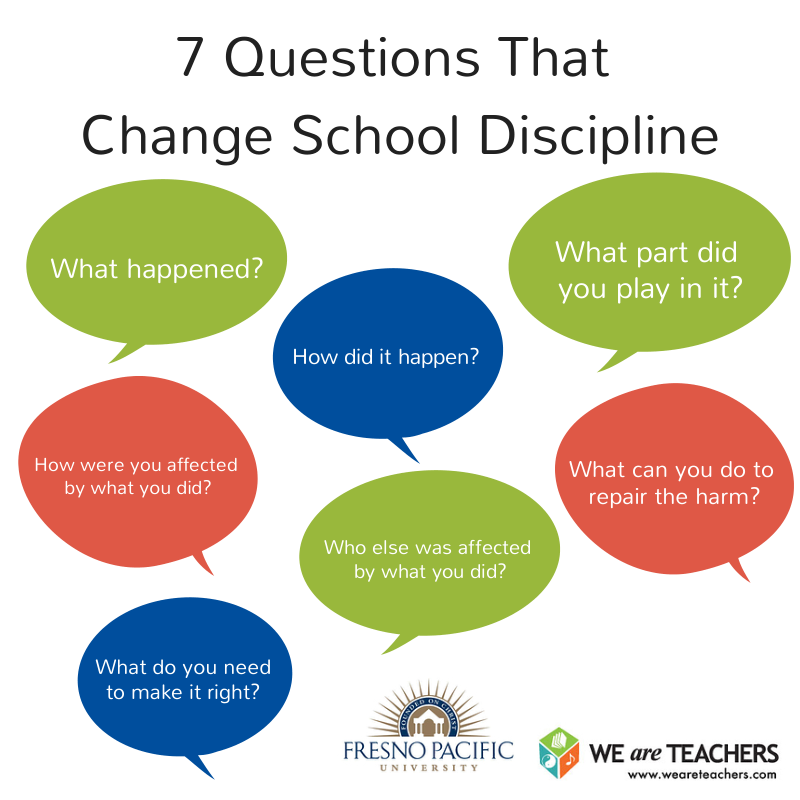 In modern technical conditions, you can record video segments of lessons without any problems and difficulties. Children can also watch them outside of school, social networks will help here.
In modern technical conditions, you can record video segments of lessons without any problems and difficulties. Children can also watch them outside of school, social networks will help here.
4. A modern teacher should speak with children in a language they understand
I am not talking about the didactic principle of accessibility of education, but about a broader requirement: to understand the child and his interests, to be able to substantiate and explain his position on the issue of interest to him so that the response the reaction was not the rejection of a third-party look. In this case, you can count on the effectiveness of pedagogical support. In most cases, children who show talents have a high degree of confidence in their actions, knowledge and opinions. This confidence is reinforced with each new success and victory. The mentor must understand the actual interests of such children in order to be understandable to them.
The position “there are no ungifted children, everyone is gifted in their own way” is correct to some extent.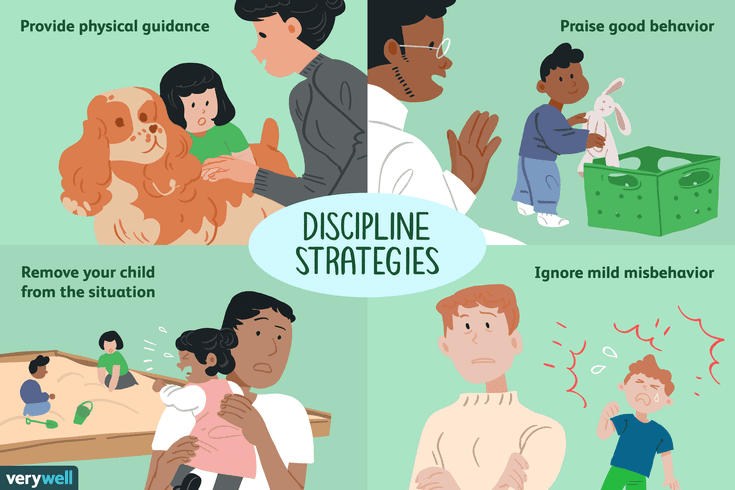 However, the interpretation of this statement should not be completely literal. To look for buried talents in everyone and to believe that anyone can be brought to the level of a prize-winner or winner of an Olympiad, a diplomat of all-Russian competitions and competitions, is at least naive. Singling out a special category of talented people is an objective necessity. If a child does not show a penchant for any type of activity, then it may really not be possible to develop an extraordinary talent in him. At the same time, by designing special psychological and pedagogical support, it is possible to identify interests and form motives, which will contribute to the success of the child. The highlighted aspects of the teacher's work are important in teaching any class. Gifted children, as practice shows, in any case, there are no more than 4-5 people in the class. The presence of even this small share always has the most positive effect on the development of the teacher's professionalism, and on his satisfaction with his work, and on the effectiveness of the educational process as a whole.
However, the interpretation of this statement should not be completely literal. To look for buried talents in everyone and to believe that anyone can be brought to the level of a prize-winner or winner of an Olympiad, a diplomat of all-Russian competitions and competitions, is at least naive. Singling out a special category of talented people is an objective necessity. If a child does not show a penchant for any type of activity, then it may really not be possible to develop an extraordinary talent in him. At the same time, by designing special psychological and pedagogical support, it is possible to identify interests and form motives, which will contribute to the success of the child. The highlighted aspects of the teacher's work are important in teaching any class. Gifted children, as practice shows, in any case, there are no more than 4-5 people in the class. The presence of even this small share always has the most positive effect on the development of the teacher's professionalism, and on his satisfaction with his work, and on the effectiveness of the educational process as a whole.







